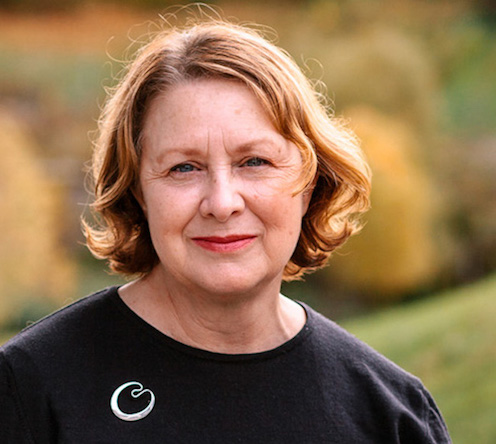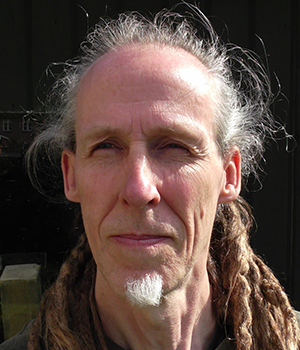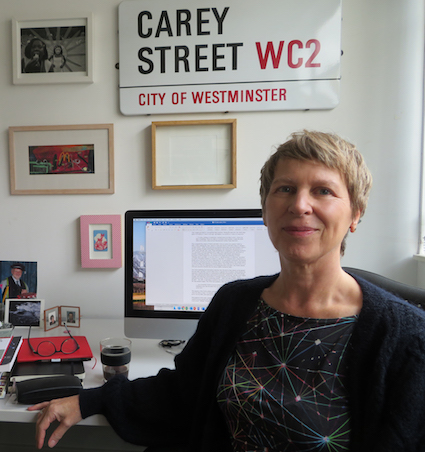IMPEC 2020 Conference > Plenary speakersPalmyre Pierroux: Palmyre Pierroux is Professor at the Department of Education, University of Oslo, Norway. She currently leads the Cultural Heritage Mediascapes project, which studies how digital media are transforming knowledge and communication practices in museums and archives. Pierroux has an interdisciplinary background, and frequently works with design-based methods and research-practice partnerships in art, design, architecture, and cultural heritage. https://www.uv.uio.no/iped/english/people/aca/palmyre/ Making sense(s) in virtual environments: Multisensory and embodied museum experiences In museums today, screen-based interactions with curated content are increasingly part of the rich semiotic environments that mediate visitors’ meaning making. One result of this development is the introduction into gallery spaces of new modalities that engage multiple senses and invite new types of movement, gesture, discourse, and social interaction. How may studies of interactions in new museum ‘mediascapes’ contribute to multisensory and embodied perspectives on meaning making? In this talk, I reflect on how this question has been addressed through our research in the past decade, focusing on a recent design-based study of an immersive exhibition in a national architecture museum. This study explored how senses may be enhanced in virtual environments to “make sense” of architecture. The exhibition experiment was the outcome of an interdisciplinary university–museum research collaboration, involving partners with similar interests in how VR technologies may foster real multisensory, visuospatial experiences of architecture in a museum setting.
Paul Bruce McIlvenny:
Paul McIlvenny is Professor in the Department of Culture and Learning at Aalborg University, Denmark. He is research leader of the Centre for Discourses in Transition (C-DiT) and a co-founder of the BigSoftVideo team that develops software tools to enhance qualitative video research. His current concern is to craft immersive visualisation technologies (XR) to investigate the relationship between mobilities, embodiments, mediated social interaction and discourse in complex environments. https://vbn.aau.dk/da/persons/106883/projects/ To screen or not to screen? Exploring transplanarity, volumetricity, hapticity and virtuality for video-based qualitative research Social interaction takes place predominantly in a world that has spatial volume, yet planocentric 2D video (and stereo audio) can inhibit our efforts to record and document tangible volumetric and haptic phenomena. My presentation explores how immersive technologies can exploit, enhance, enfold, sublimate, splinter and bypass ‘the flat screen’ in video-based qualitative research. The presentation will be illustrated with examples of the use of virtual reality software tools, such as CAVA360VR and SQUIVE, designed to support Immersive Qualitative Analytics within the Big Video paradigm.
Carey Jewitt: Carey Jewitt is Professor of Technology and Learning, at UCL Knowledge Lab, University College London, UK. Her work explores how the use of digital technologies shape the ways people interact and communicate, through the lens of multimodality and the sensorial. Carey is engaged with the development of multimodal theory and methods, and methodological innovation at the intersection of the arts and social sciences. She has conducted many research projects, most with an interdisciplinary element, and her work has been funded by ERC, ESRC, EPSRC, and the British Academy. Carey currently leads InTouch an ERC Consolidator Award an interdisciplinary project investigating the sociality and sensoriality of digital touch technologies for communication. She publishes in the areas of multimodality, digital technology, and research methodologies, most recently, Interdisciplinary Insights for Digital Touch Communication (2020), and is founding editor of the Visual Communication Journal (Sage). https://www.ucl.ac.uk/ioe/people/academics/qa-professor-carey-jewitt Methodological experiments in touch across the arts and social science Touch is our ‘first sense’, we develop it in the womb, and it is central to how we know and experience ourselves, others and the world. Technological developments in the field of haptics and sensory communication are bringing touch newly to the fore of the digital communication landscape. However, touch has been rather neglected within communication studies, even within sensory, multimodal and embodiment research, with some notable exceptions. Against this backdrop, there is a need to better understand the sensoriality and sociality of touch and how it is coming to be digitally mediated. In order to do this, we need methods that are attuned to the investigation of the sensory and social dimensions of touch. With attention to the conference focus on methodologies, sensorialities and the digital, I will discuss some of the ways that the InTouch project, is working across the arts and social science to develop methodologies for researching digital touch. I will draw on two project case studies, The Art of Touching, a collaboration with digital interactive artists to create an exhibition, and Thresholds of Touch, a collaborative experiment with a digital performance artist and sound artist, to create an interactive performance and exploratory workshop. Through these case studies I will hone in on the development of methods that go beyond language to explore touch through touch, and speculative methodologies to explore digital touch futures beyond the screen. |




